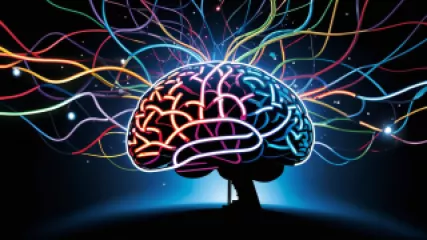How does psychology influence belief development?
Introduction
Beliefs play a fundamental role in shaping our thoughts, emotions, and behaviors. They guide our decision-making processes and influence how we perceive the world around us. But have you ever wondered how beliefs are formed and why they can be so difficult to change? In this article, we will explore the fascinating relationship between psychology and belief development.
The Psychology of Belief
Beliefs are deeply ingrained cognitive structures that help us make sense of the world. They are mental representations of our knowledge, values, and expectations. Psychology, as the scientific study of the mind and behavior, provides valuable insights into understanding the processes behind belief formation.
Our beliefs are not static entities but are continually shaped and influenced by various psychological factors. These factors include our experiences, upbringing, social interactions, cultural background, and personal identity. Let's delve deeper into the psychological mechanisms at play in belief development.
1. Cognitive Processes
Belief development involves complex cognitive processes such as perception, attention, memory, and reasoning. Our brains actively process information from the environment and construct beliefs based on these cognitive processes. For example, if we repeatedly encounter evidence that supports a particular belief, our brains tend to reinforce that belief through confirmation bias.
Confirmation bias: This cognitive bias refers to our tendency to seek, interpret, and remember information that confirms our preexisting beliefs while ignoring or dismissing contradictory evidence. Confirmation bias can perpetuate and strengthen existing beliefs, making it challenging to consider alternative viewpoints.
Availability heuristic: Another cognitive bias that influences belief development is the availability heuristic. This bias leads us to rely on easily accessible examples or information when making judgments or decisions. If we remember instances that support a belief more readily, we are more likely to maintain and reinforce that belief.
2. Social Influence
Beliefs also emerge and evolve through social interactions. Our social environment, including family, friends, community, and media, significantly impacts the development of our beliefs. We learn from others, adopt their perspectives, and internalize their values.
Social learning: We are inherently social beings and learn by observing and imitating others. This process, known as social learning, plays a crucial role in belief development. When we witness people we respect or admire holding certain beliefs, we are more inclined to adopt those beliefs ourselves.
Group dynamics: Beliefs can be reinforced and amplified within social groups. Group dynamics, such as conformity and group polarization, can lead individuals to adopt more extreme versions of their initial beliefs when surrounded by like-minded individuals. This phenomenon explains how beliefs can become deeply ingrained within specific communities or cultures.
3. Emotional Influences
Emotions also play a significant role in belief formation. Our emotional experiences can shape our beliefs and vice versa. Emotionally charged events tend to have a stronger impact on belief development compared to neutral events.
Emotional reasoning: Emotional reasoning refers to the tendency to rely on emotions rather than logical reasoning when forming beliefs. If a particular belief evokes strong positive or negative emotions, we are more likely to accept it as true, regardless of supporting evidence.
Emotional contagion: Our emotional states can be contagious, spreading from person to person. When we observe others expressing strong emotions related to a particular belief, we may adopt similar emotions and subsequently develop similar beliefs. This mechanism highlights the power of emotional influence in belief development.
Psychological Interventions for Belief Change
Given that beliefs are deeply ingrained and influenced by a multitude of psychological factors, changing them can be challenging. However, psychology offers various evidence-based therapeutic approaches and strategies to facilitate belief change and promote psychological well-being.
1. Cognitive-Behavioral Therapy (CBT)
Cognitive-Behavioral Therapy (CBT) is a widely used therapeutic approach that focuses on identifying and modifying maladaptive thought patterns and beliefs. By challenging negative or irrational beliefs, individuals can develop more adaptive and realistic belief systems.
CBT techniques such as cognitive restructuring help individuals examine the evidence supporting their beliefs and consider alternative perspectives. This process aims to reduce cognitive biases and facilitate belief change through logical reasoning and critical thinking.
2. Mindfulness-Based Interventions
Mindfulness-based interventions, such as Mindfulness-Based Stress Reduction (MBSR) and Mindfulness-Based Cognitive Therapy (MBCT), have shown promise in facilitating belief change. These interventions involve cultivating present-moment awareness and non-judgmental acceptance of thoughts and emotions.
By practicing mindfulness, individuals can develop a greater ability to observe their thoughts and beliefs without immediately accepting them as true. This increased awareness creates space for questioning and exploring alternative perspectives, leading to more flexible belief systems.
3. Narrative Therapy
Narrative therapy focuses on understanding how our personal stories and narratives shape our beliefs and identities. By exploring the origins and meanings of our beliefs within the context of our life experiences, narrative therapy aims to promote belief flexibility and empower individuals to construct new, empowering stories.
Through the process of re-authoring their narratives, individuals can challenge and revise limiting or self-defeating beliefs. This approach encourages the development of more adaptive belief systems that align with individuals' values and goals.
Conclusion
Beliefs are complex psychological constructs that significantly influence our thoughts, feelings, and behaviors. Understanding the psychological processes involved in belief development can shed light on why beliefs can be resistant to change.
Psychology provides valuable insights into how cognitive processes, social influences, and emotions shape the formation and maintenance of beliefs. Furthermore, evidence-based therapies such as Cognitive-Behavioral Therapy, mindfulness-based interventions, and narrative therapy offer effective strategies for facilitating belief change.
By recognizing the psychological underpinnings of belief development and utilizing evidence-based interventions, we can navigate the intricate landscape of beliefs and foster personal growth and well-being.






